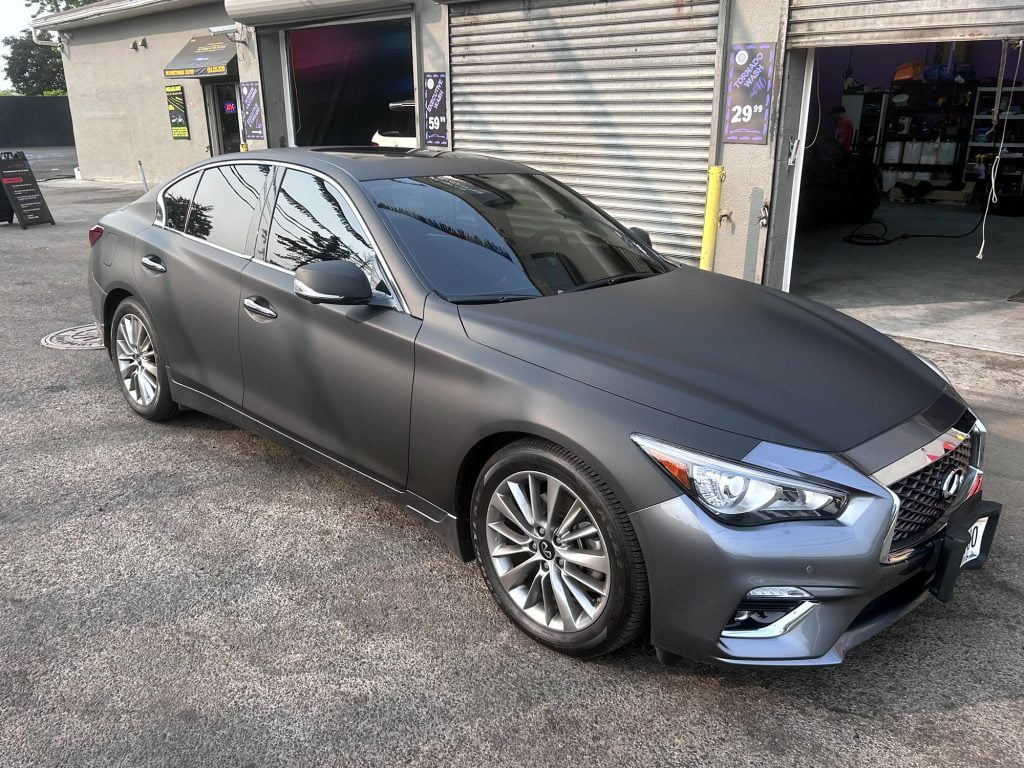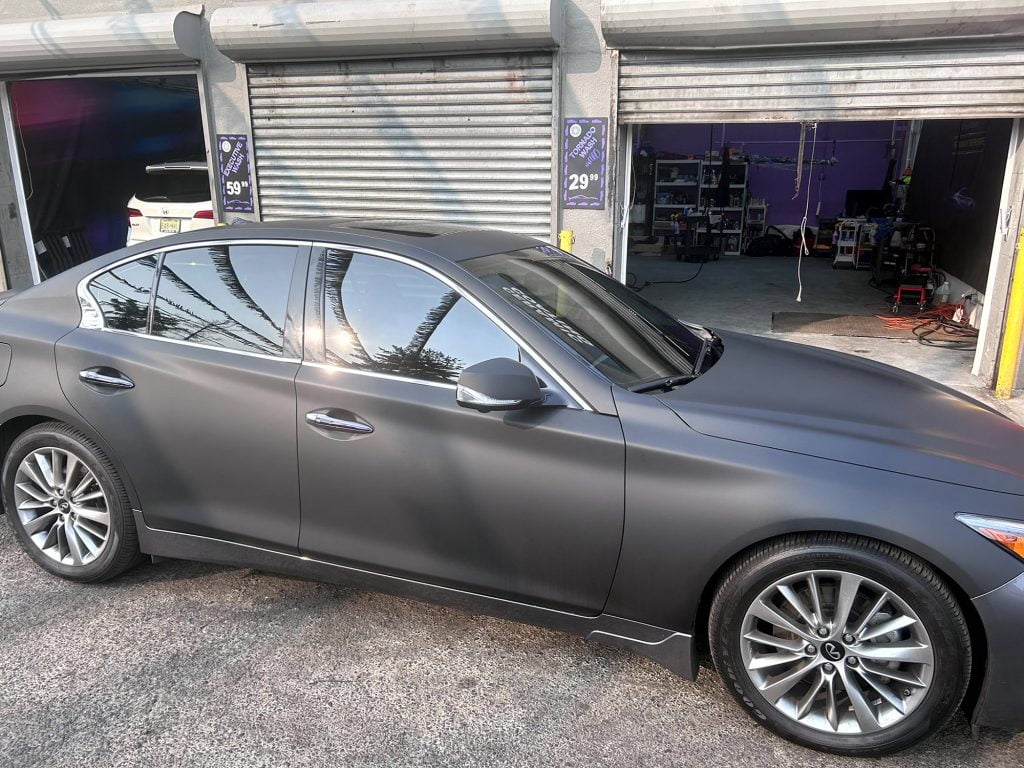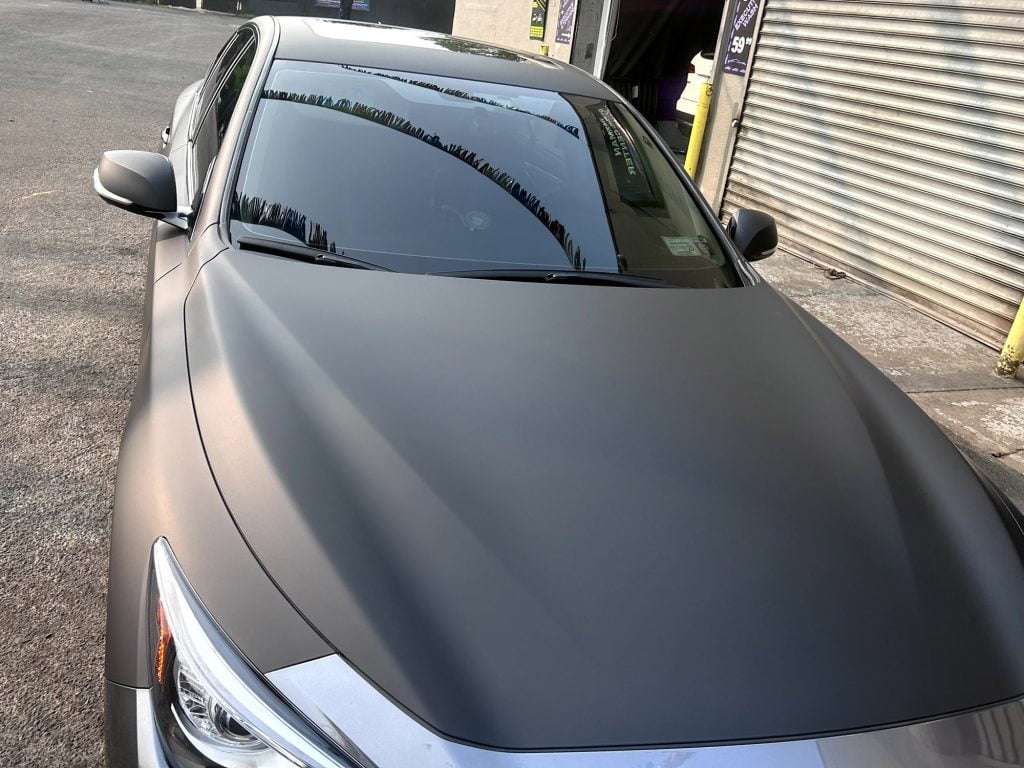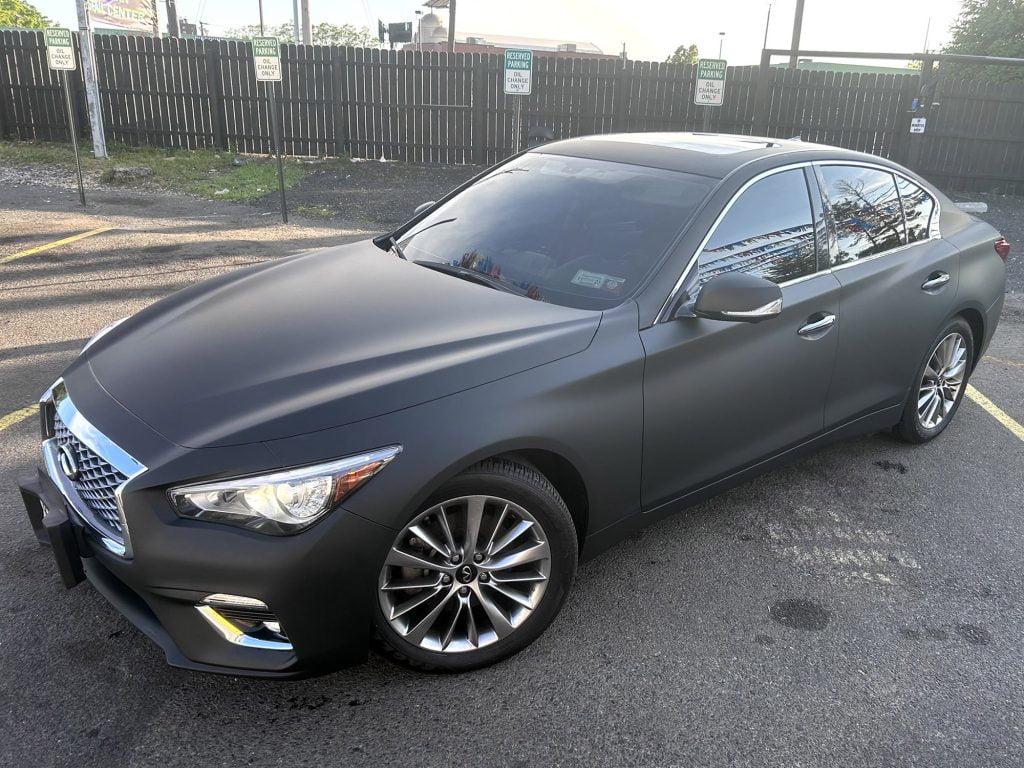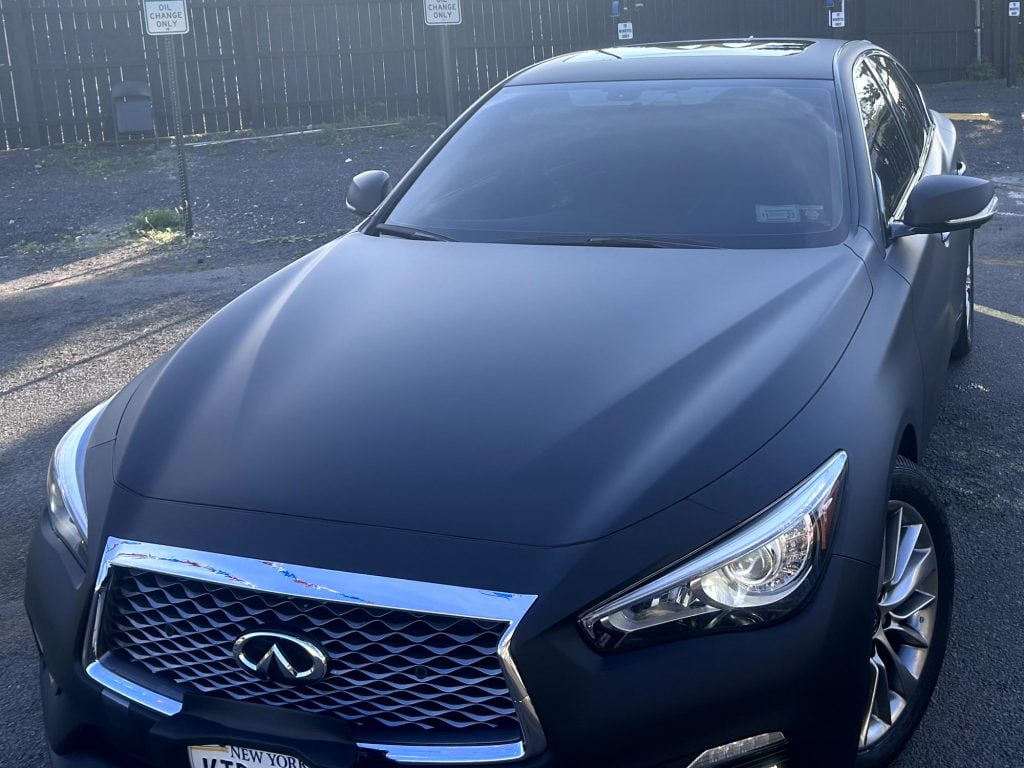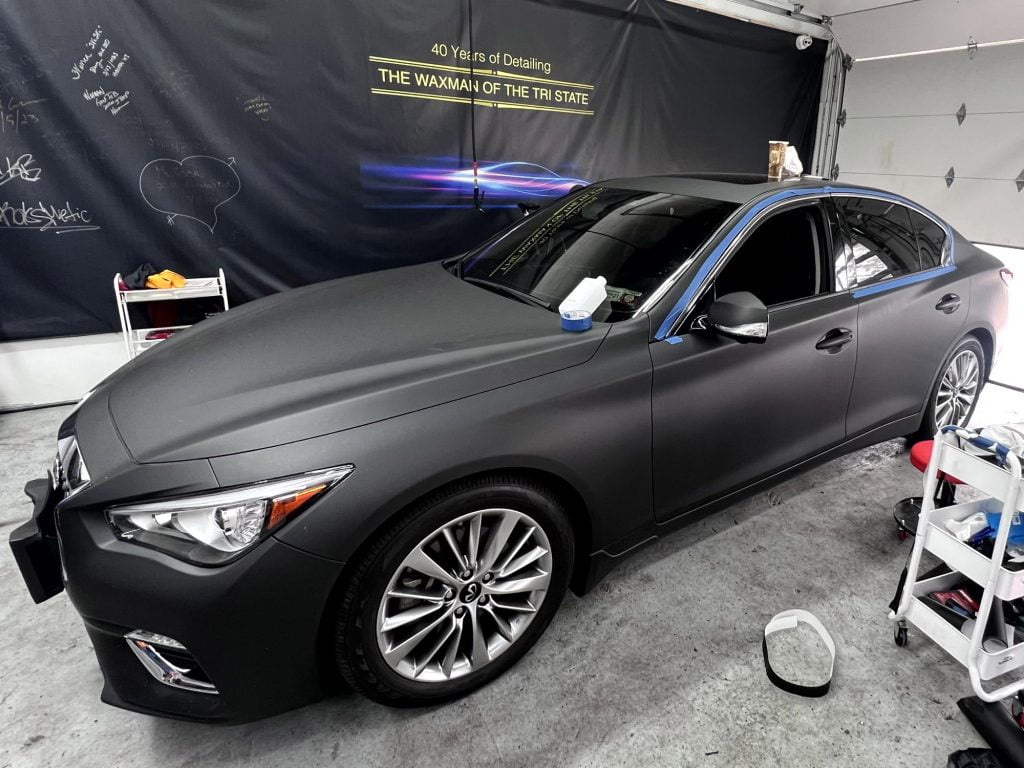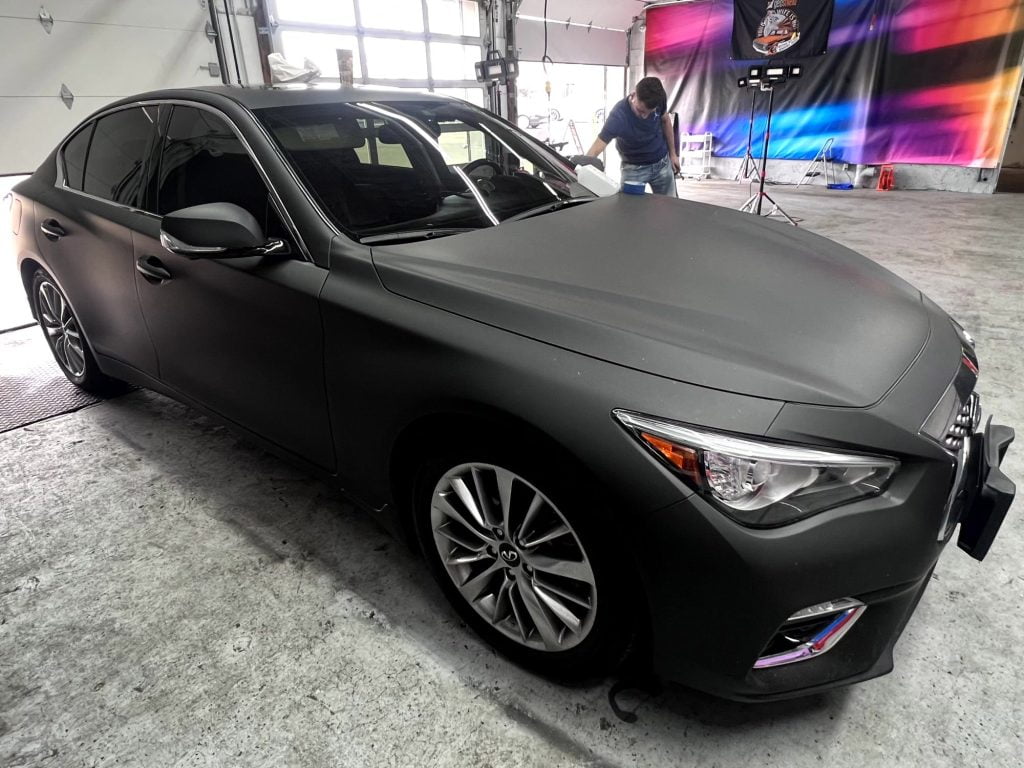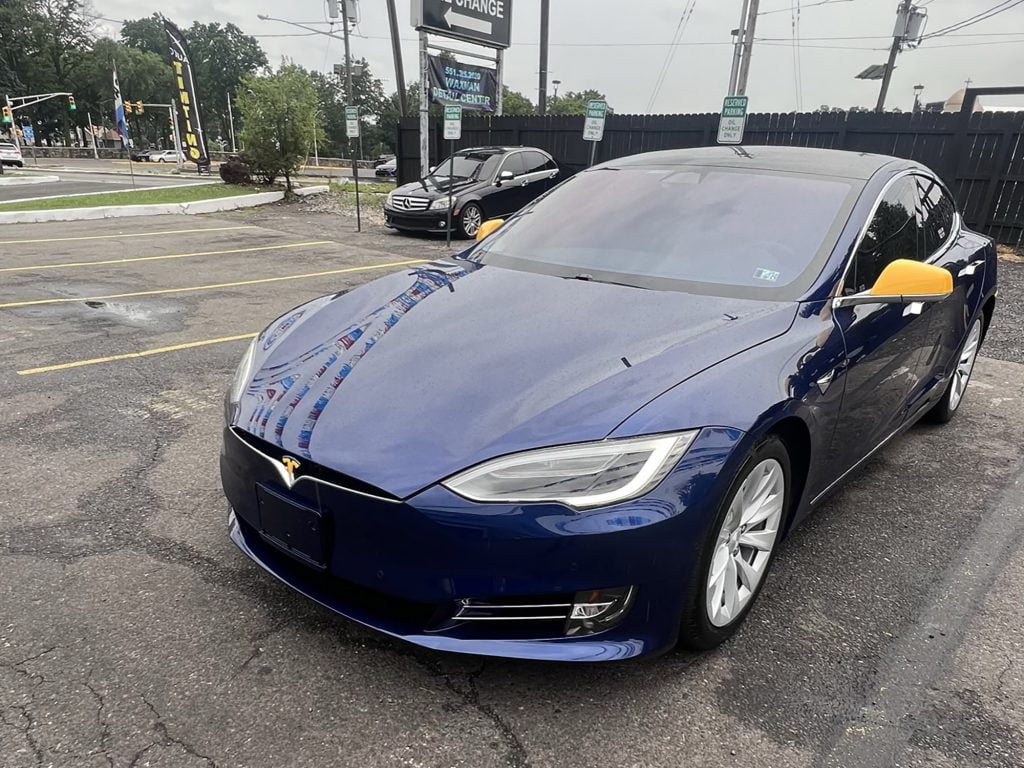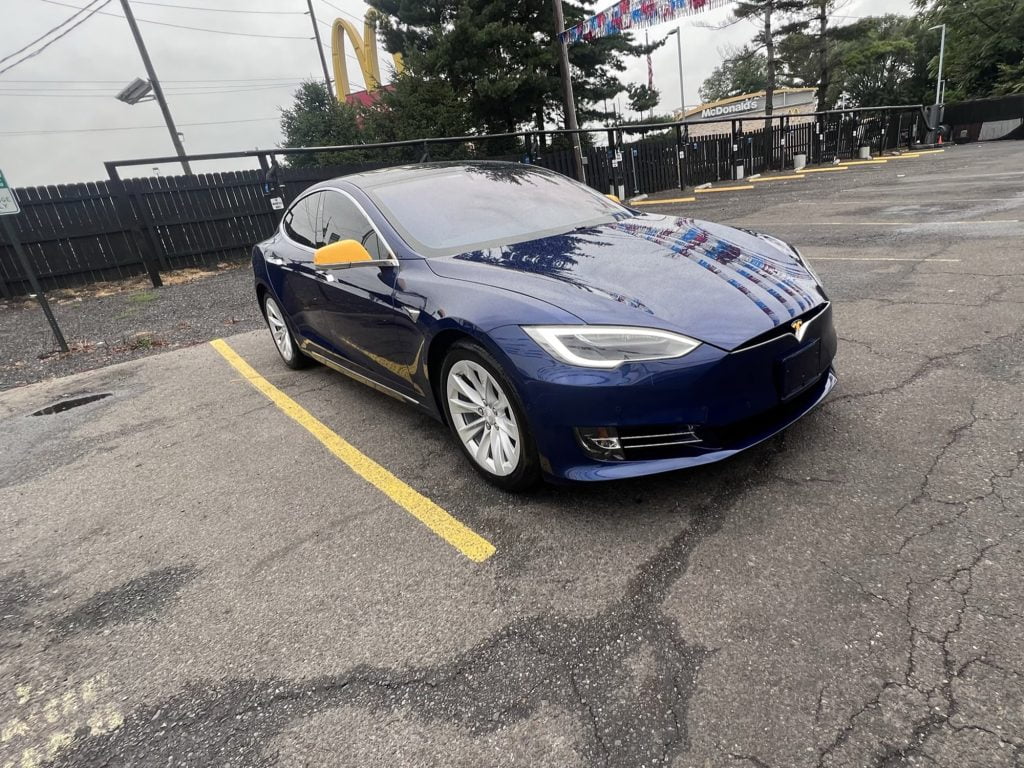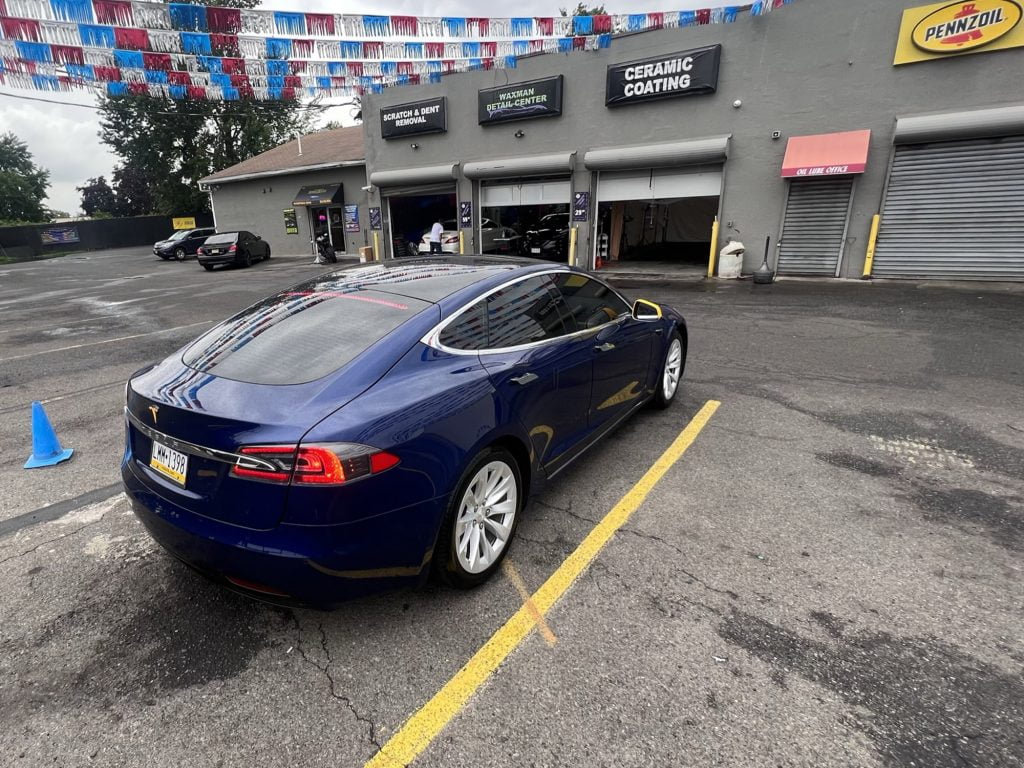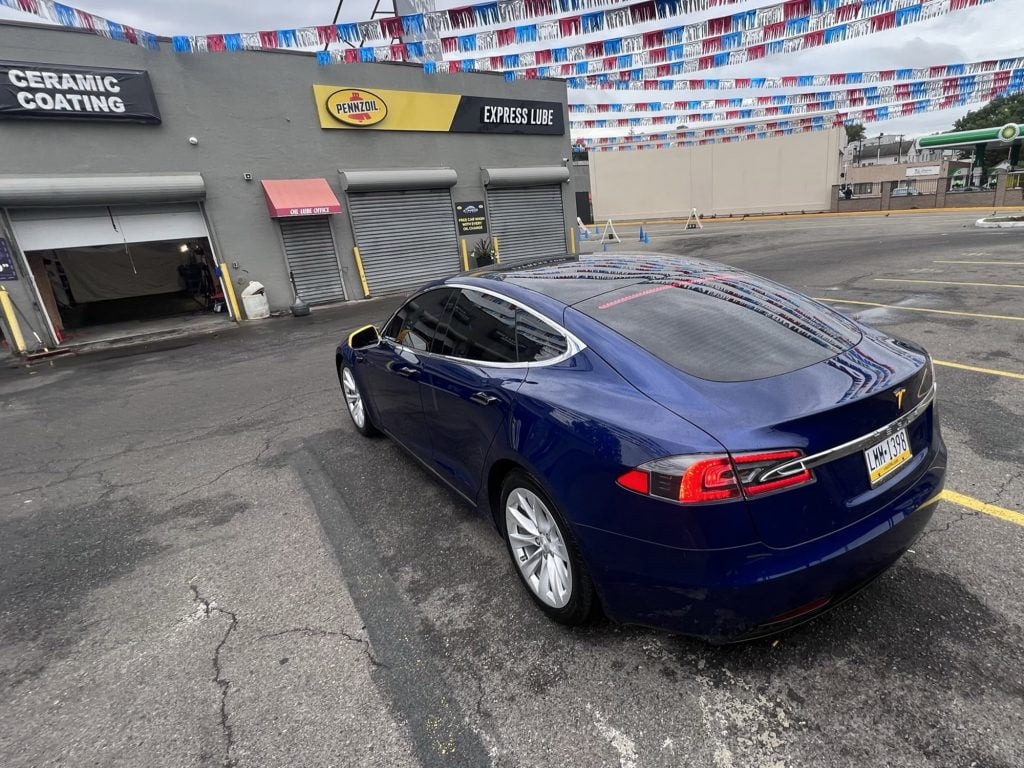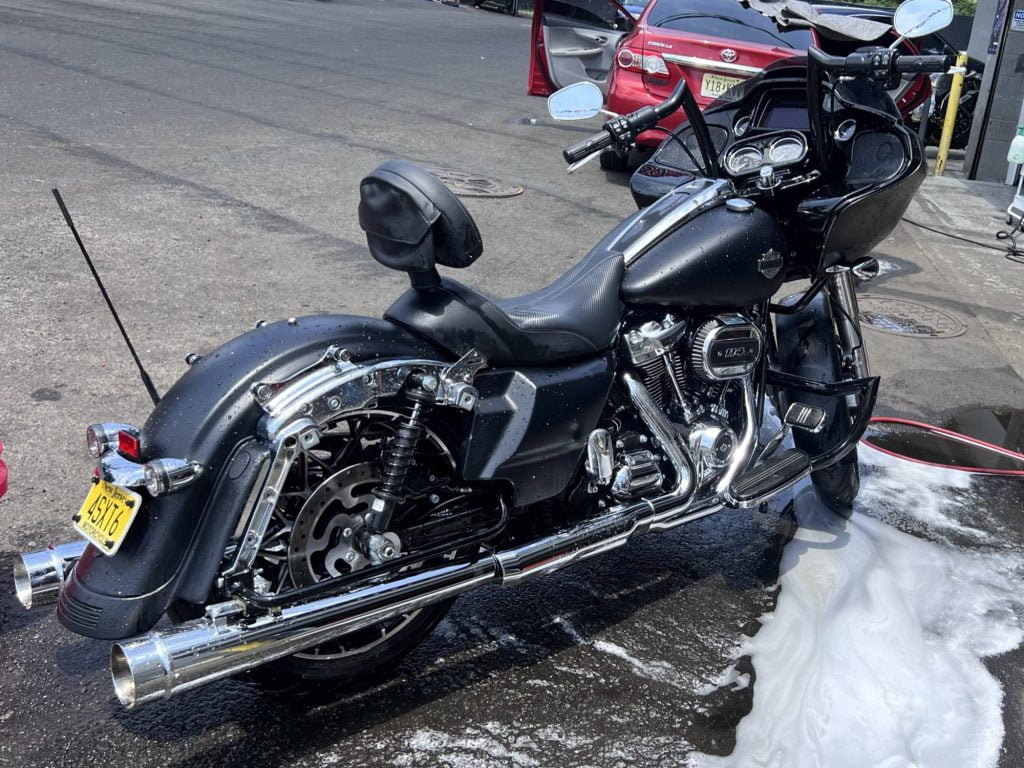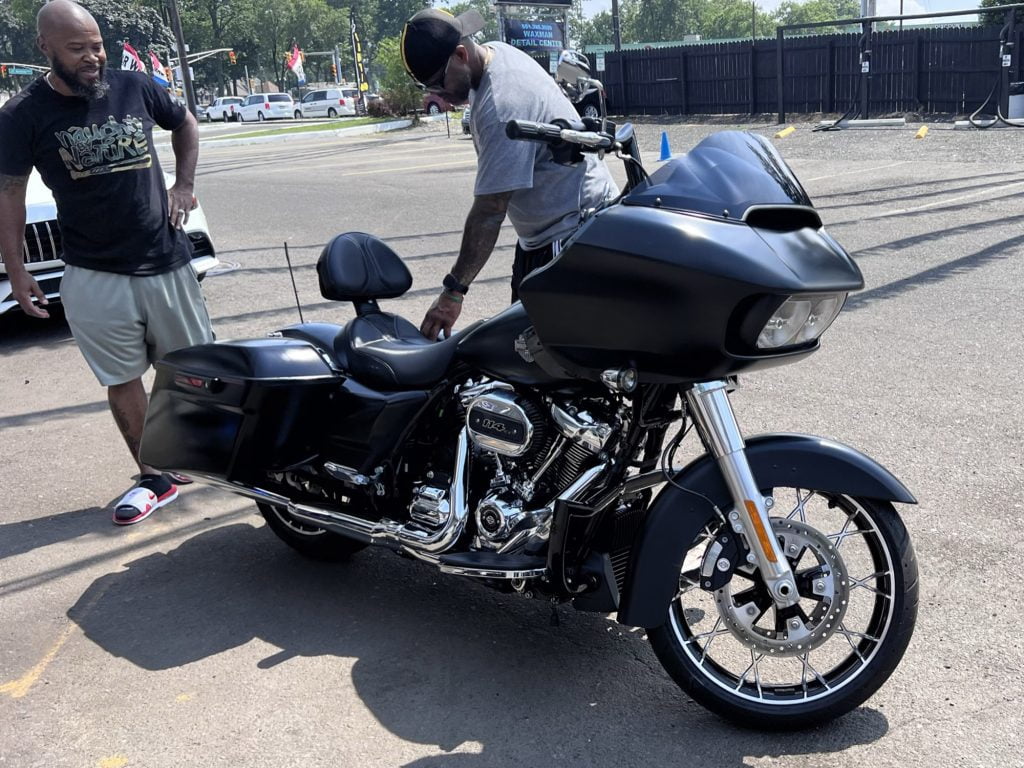What Goes into the Cost to Wrap a Car?
A car wrap is a vinyl adhesive film that’s applied to your vehicle’s surface to cover up wear and tear, to maintain a new-car finish or to add graphics for advertising or creative expression. There are many types of wraps available, from commercial car wraps with marketing info on them to interior wraps that keep the inside of the car fresh and free from sun damage. The cost to wrap a vehicle varies depending on a number of factors, such as:
- Size of your vehicle. The larger the vehicle, the more material is required to cover it, and consequently, the higher the cost. If you want to save money, you can choose to do a partial wrap or just a roof wrap to protect your car from tree sap and weather damage.
- Type and quality of material. Car wraps typically are made from vinyl. The cost is affected by the quality and brand of the vinyl used. High-quality vinyl films that offer better durability and appearance usually are more expensive, but they last longer and are much more effective than cheaper products.
- Complexity of the design. If you have a complex design that requires intricate detailing, multiple colors or custom graphics, it increases the cost. Designs that involve more labor and require precise installation take longer and incur additional charges.
- Full or partial wrap. Full wraps cover the entire surface of the vehicle, including all panels and contours. Partial wraps, on the other hand, cover only specific areas, like the doors, which are prone to dings and dents when parked at shopping centers. Full wraps are generally more expensive as they require more material and labor.
- Preparation work. If your vehicle requires heavy cleaning, removal of previous wraps or graphics, or any type of paint correction, you’ll incur additional costs.
- Additional services. Additional services such as design consultation and custom graphics creation add to the overall cost.
These factors are general considerations; actual pricing may be different based on your specific requirements. For the best car wrap cost and exceptional service, call Waxman of Tristate Car Detailing Center in Jersey City. The experienced techs tell you how much is it to wrap a car and then wrap it to your ultimate satisfaction.
How Much Detailing Needs to Be Done Before a Car Wrap Can Be Applied?
Before applying a car wrap, in-depth detailing needs to be done to ensure a clean and smooth surface for optimal adhesion and appearance. It must also be dried and free of any debris. Common detailing steps your car will undergo include:
- Washing. The vehicle needs to be thoroughly washed to remove dirt, dust, grime and any other contaminants from the surface. A gentle car wash solution and microfiber towels are typically used to avoid damaging the paint and leaving lint and dust that could get trapped under the wrap and ruin the finish.
- Decontamination involves removing bonded contaminants like tar, tree sap, or industrial fallout from the vehicle’s surface. Clay bars or decontamination products are used to gently remove these substances without harming the paint.
- Paint correction. Paint correction refers to the process of removing imperfections such as swirl marks, scratches or oxidation from the vehicle’s paintwork. This step enhances the overall appearance of the wrap and ensures a smooth surface.
- Surface preparation. After washing and decontaminating the vehicle, the surface needs to be properly prepared for the wrap. This typically involves using alcohol-based solutions or special cleaning agents to remove any remaining residues, waxes or sealants. This step ensures that the wrap adheres well to the paint.
- Panel remova In some cases, for a more seamless and professional installation, certain vehicle components like emblems, badges, door handles and trim may need to be temporarily removed. This allows for better access to wrap the underlying surfaces and ensures a clean, wrapped finish.
In cases where the vehicle has deep scratches, dents or extensive paint damage, additional paint correction or repairs may be necessary before the wrap can be applied, otherwise you won’t be happy with the results.
How Much Does It Cost to Wrap a Car or Truck?
While providing precise prices for each specific type of vehicle is challenging due to the wide range of variables involved, there are some general guidelines and examples used to gauge the cost to wrap a car. Average estimations in the tristate vary, but generally follow set targets for:
- Compact cars and sedans. Compact cars and sedans are generally smaller in size, requiring less material and labor compared to larger vehicles. As a result, the cost to wrap these vehicles is often more affordable. On average, you can expect the cost to wrap a small vehicle to range from $1,500 to $3,000.
- SUVs and crossovers. SUVs and crossovers have larger surface areas than compact cars, so they require more vinyl material and installation time. The cost to wrap an SUV or crossover typically falls between $2,500 and $5,000.
- Vans and minivans. Vans and minivans have larger and more boxy surfaces, which affect the cost. The price range for wrapping a van or minivan is usually higher, ranging from $3,000 to $6,000 or more, depending on the size and complexity of the wrap.
- The cost to wrap a truck or pickup varies significantly based on the size, style and any additional customization requirements. On average, you can expect the cost to range from $2,500 to $6,000 or more, depending on the specific truck model and the desired design.
- Luxury and exotic cars. Luxury and exotic cars often require specialized installation techniques, additional care and very precise attention to detail. The cost of wrapping luxury cars can be higher due to these factors. Depending on the vehicle and customization needs, the cost to wrap a luxury or exotic car can range from $3,000 to $10,000 or more.
- On average, the cost to wrap a Tesla can range from $2,000 to $6,000 or more.
- On average, the cost to wrap a motorcycle can range from $500 to $2,000 or more. Smaller motorcycles, such as sport bikes or scooters, generally require less material and labor, making them less expensive to wrap compared to larger motorcycles like cruisers or touring bikes.
- On average, the cost to wrap a boat can range from $1,500 to $10,000 or more.
Doing a car wrap or even just a roof wrap yourself isn’t recommended because it requires a special touch, certain tools and definite expertise. Additionally, you need to know which vinyl to purchase, as vinyl prices range from $200 to $1,000 or more. You would also need special tools, which can range in cost from $50 to $200. And while you may save some money upfront, the cost to repair your mistakes may cost you even more.
How Much Does Wrapping a Car Save on Future Repairs?
Wrapping a car provides some level of protection to the underlying paintwork, which results in potential savings on future repairs. However, the extent of savings varies depending on the quality of the wrap installation, the conditions the vehicle is exposed to and the specific type of damage that occurs. Common ways that car wrapping can potentially save on future repairs include:
- Paint protection. One of the primary benefits of car wrapping is that it acts as a protective layer for the original paintwork. The vinyl wrap creates a barrier that shields the underlying paint from minor scratches, stone chips and other surface damage. By minimizing the direct contact between the paint and external elements, a car wrap helps maintain the vehicle’s appearance and reduces the need for paint touch-ups and minor dent repairs.
- UV protection. Car wraps are designed to resist ultraviolet rays, which can cause fading and damage to the paint over time. By blocking UV radiation, a wrap preserves the original color and finish of the vehicle, reducing the likelihood of paint deterioration and the associated repair costs.
- Surface protection. Car wraps also offer protection against environmental contaminants such as dirt, bird droppings and tree sap. These substances adhere to the paintwork and cause damage if not promptly cleaned. With a car wrap in place, these contaminants are more likely to affect the vinyl layer rather than the paint, making it easier to clean and reducing the risk of permanent paint damage.
- Resale value preservation. Maintaining the appearance of a vehicle is crucial for preserving its resale value. A well-maintained and protected paintwork, thanks to a car wrap, contributes to a higher resale value when it comes time to sell or trade in the vehicle. By minimizing visible wear and tear, a car wrap helps you avoid potential deductions in the vehicle’s value and potentially offset the costs of future repairs.
While car wrapping offers certain protective benefits, it’s not a foolproof solution and can’t entirely eliminate the need for maintenance or repairs. Severe impacts, accidents and improper installation can still cause damage to the underlying paintwork, which may require professional repairs, which is one more reason why you want to leave you ride in the hands of experienced car wrapping pros and not try to do it yourself.
Additionally, the durability and longevity of a car wrap varies significantly depending on the quality of the materials used and how well your vehicle is cared for:
- Keep it out of the sun and in a garage if possible.
- Gently wash it regularly to maintain the wrap as long as possible.
- Remove harmful contaminants as soon as you spot them.
Contact Waxman of Tristate Car Detailing Center to get your car wrap done the right way the first time.

